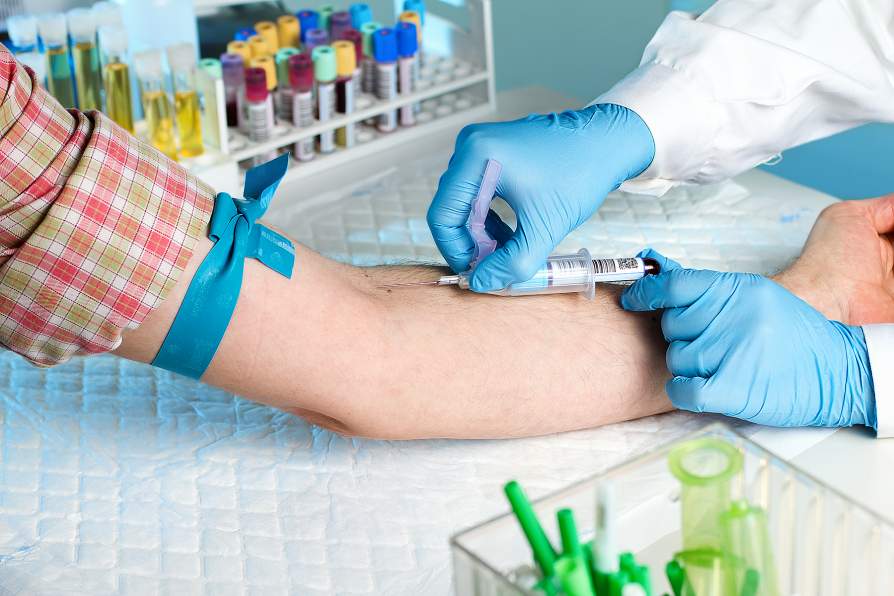By Annette Pinder
Vincent Tutino, assistant professor of pathology and anatomical sciences at the UB Jacobs School of Medicine and Biomedical Sciences, believes there is a cost-effective and simple way to detect a potential brain aneurysm. Through Neurovascular Diagnostics, a small biomedical company Tutino co-founded in 2016, a team of researchers is developing a way to screen individuals for brain aneurysms with a blood test called AneuScreen.
To further this work, Neurovascular Diagnostics — co-founded by Hui Meng, UB Distinguished Professor in the Department of Mechanical and Aerospace Engineering, Jeff Harvey, a Western New York entrepreneur, and Kenneth Snyder, UB assistant professor of neurosurgery, was recently awarded $2.9 million from the National Institutes of Health (NIH) in Small Business Innovation Research (SBIR) funds to support research over the next three years.
Brain aneurysms are catastrophic events that result in a high rate of mortality and permanent disability among survivors. Most health insurance covers this type of screening only if two or more immediate family members have had an aneurysm. It is also usually handled through MRI testing, which may not be highly accurate at detecting aneurysms, especially smaller ones.
Tutino says identifying the best candidates and screening them with an inexpensive blood test to predict their potential for brain aneurysms would become easier and cheaper.
Harvey, who lost his wife, Carol Harvey, to two ruptured brain aneurysms in 2002, provided the seed money for the company, and established a research grant through the Brain Aneurysm Foundation.
Neurovascular Diagnostics received two National Science Foundation grants, two NIH grants, and funding from UB’s Center for Advanced Technology in Big Data and Health Sciences (UB CAT) program. Kerry Poppenberg, Neurovascular Diagnostics’ chief science officer and a UB research scientist in the neurosurgery department, is co-principal investigator with Tutino for the grant; Harvey serves as the company’s chief financial officer; Meng serves as the chief scientific officer; and Snyder serves as the chief medical officer and clinical adviser.
Other clinical collaborators at the Jacobs School include Elad Levy, professor and chair of the Neurosurgery Department, Adnan Siddiqui, professor and vice chair of neurosurgery, and John E. Tomaszewski, MD, SUNY Distinguished Professor and the Peter A. Nickerson, PhD, Professor and Chair of Pathology and Anatomical Sciences at UB.
Tutino and his team have used whole blood samples from patients coming in for medical imaging at the Gates Vascular Institute, in addition to medical centers at University of Pennsylvania, University of Iowa, and University of South Florida. The blood test will also help triage patients to see which ones may need more invasive imaging and more immediate treatment. He and his team will also finalize a biomarker for the risk assessment for a brain aneurysm and then test it in new patients across the four medical centers. Since roughly 1% of all known aneurysms per year end up rupturing, the team wants to use this blood test to figure out which aneurysms present the most risk.












